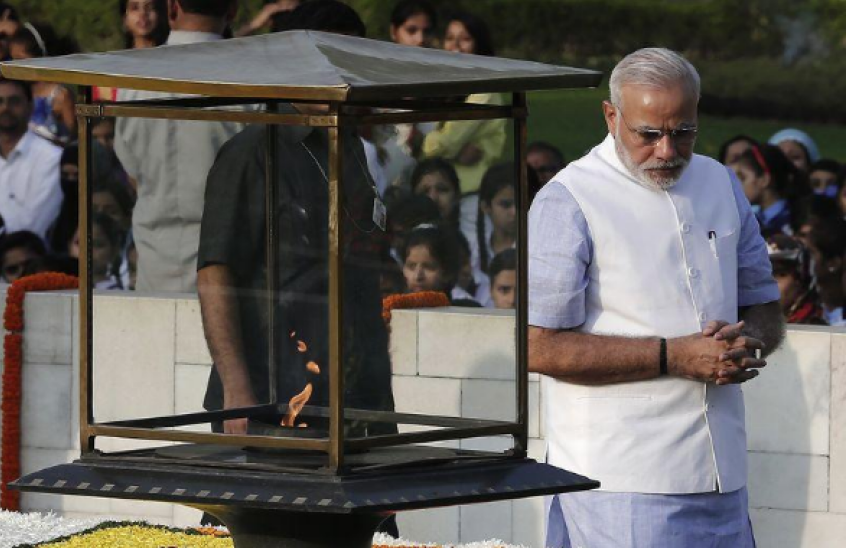This past Monday, November 19, was World Toilet Day – an official United Nations observance that I'm guessing most people probably did not mark on their calendar.
The truth is most of us don't think twice about having access to a bathroom. The only times we worry – or panic depending on the situation – is when we are in public and can't find one. But for the 4.5 billion people in the world who don't have proper access to safe sanitation, not having a toilet carries severe health, economic, educational and social repercussions.

Lack of access to safe sanitation often leads to open defecation, which in turn leads to contaminated water sources and ultimately waterborne diseases. Additionally, millions of men, women and children spend countless hours, which could be used for work or schooling, walking to public latrines or cleaning dry toilets. And of course, there is the shame and discomfort of having no privacy when going to the bathroom.
All of these are urgent reasons why we all should care about this issue. But coming from India, I know of another reason we would be remiss to ignore: for India's Dalits – sometimes called 'untouchables' – improving safe sanitation is literally a matter of freedom.
Due to the inordinate amount of attention the media gave to the hearings for Brett Kavanaugh's contentious Supreme Court confirmation process, most Americans missed a story that went viral on the other side of the world. It was told by the heartbreaking picture of a boy mourning his stepfather's death.
'The boy walked up to his father's body at a crematorium, moved the sheet from the face, held the cheeks with both hands, just said "papa" & began sobbing,' wrote Shiv Sunny, the Hindustan Times journalist who posted the image on Twitter.
'The man was yet another poor labourer who died in a Delhi sewer on Friday,' he added. 'Family did not have money even for cremating him.'
Manual scavenging – cleaning sewers and dry toilets in rural areas – has been outlawed in India for 25 years, yet an estimated 182,505 families participate in this unofficial industry, according to a 2011 government census.
Cleaning sewers in India's cities is extremely dangerous. Often, employers do not provide workers the proper safety gear for the job, as it happened with the man above. In 2017, the Ministry of Social Justice and Empowerment admitted more than 300 scavenger deaths were registered in India. But according to Safai Karmachari Andolan (Sanitation Workers Movement), an organisation that tracks deaths of scavengers and seeks compensation for victims' families, the annual death toll is likely closer to 500.
Manual scavenging is not as much a career choice as it is a birth curse. You see, virtually all manual scavengers and sanitation workers in India are from the Valmiki community, which belongs to the Dalit caste, and there's a reason for it.
According to the ancient caste system, all Indians are born into a predetermined social class according to their ancestry. The purer your blood, the higher you rank in the system. Dalits are considered so impure they are not even officially part of the social structure. In fact, if you belonged to a higher caste and came into contact with a Dalit, you were made impure. This is why untouchability – physical and social – was practised for millennia in India. It wasn't until the advent of the Indian Constitution in 1950, which was drafted by the Columbia-educated BR Ambedkar, a Dalit himself, that untouchability was banned. Yet nearly 70 years later, the lingering effects of the caste system still impact the lives of millions of Indians.
To this day, Dalits are ostracized, exploited, raped and murdered. They are literally treated as if they were below animals, murdered and beaten for the mere rumour of hurting cows – considered holy by many Hindus – or even for ludicrous reasons such as sporting a moustache. Young Dalit men are assassinated for marrying women from higher castes. This happened not too long ago in Telangana, where the angry father of a bride ordered the murder of her Dalit husband. The young woman was five months pregnant, and as if murdering her husband wasn't enough, the father wanted her to terminate the pregnancy.
Millennia of this enduring violence and discrimination has resulted in educational backwardness, poverty and even a shortening in life expectancy. The average Dalit woman dies 14.6 years younger than women from a higher caste, reported a UN study.
Though estimates vary, it's widely agreed that there are at least 220 million Dalits in India. That's two-thirds of America's population. Put in perspective, the plight of the Dalits – easily the greatest human rights abuse in history – may seem overwhelming, but initiatives such as the UN's World Toilet Day make us realize there are attainable ways to help men and women find freedom from cultural bondage. For many Dalits, a working toilet could mean freedom.
Most Rev Joseph D'Souza is an internationally renowned human and civil rights activist. He is the founder of Dignity Freedom Network, an organisation that advocates for and delivers humanitarian aid to the marginalised and outcastes of South Asia. He is archbishop of the Anglican Good Shepherd Church of India and serves as the president of the All India Christian Council.













